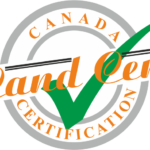Introducing Chad
About Chad
From the natural wonders of the Sahara Desert and Lake Chad to the tribal culture and hospitality that flourishes across the country, Chad quietly gets on with creating unforgettable experiences, while the rest of the world looks on unaware.
With a predominantly rural population, urban life is restricted to N’Djamena, the capital. As Chad’s commercial hub it attracts people from over 200 different ethnic groups. The result is a diverse set of social structures rubbing alongside one another and stark contrasts between the capital’s modernist heart and the ancient ways of nomadic tribespeople such as the Tuareg and Toubou.
Ethnicity remains far more important than Chadian identity and tribes hold dear a rich cultural heritage that remains largely unchanged by time or the outside world.
Chad’s prehistoric cave paintings, found amid gnarled rock formations in the Sahara Desert, document the existence of large animals in the region for millennia, so it is therefore unsurprising that even today the country is home to some of Africa’s most iconic species, including elephant, rhino, giraffe, leopard and lion.
Birdsong, made all the sweeter by the desert landscape, is near constant in the hidden palm-fringed oases of the Sahara, while the clear blue waters of Lake Chad form the second largest wetland in Africa and an important source of water for not only birds but reptiles and larger mammals too.
Whether it is to experience the solitude of the Sahara, seek out the hospitality of the Tuareg or witness animals surviving in the one of the most extreme landscapes on Earth, Chad offers hardy travellers an extraordinary experience. It may be nicknamed the “dead heart of Africa,” but as anyone who knows this country will tell you, that moniker couldn’t be further from the truth.
Language, Culture & History
History of Chad
Indications of settlements around Lake Chad date back to Neolithic times, and the lake’s shores have acted as an important junction for several major trans-Saharan caravan routes for centuries.
From the 11th to the 15th century, the state of Kanem was the dominant force in the region, occupying much of the area that makes up present-day Chad. In the 15th and 16th centuries, the state of Borno, which had its centre on the other side of Lake Chad (in present-day Nigeria), exercised a major influence.
A gradual process of Islamisation took place across the region from this time, especially during the 16th and 17th centuries, which saw the kingdoms of the Bagirmi and Ouaddai reach their zenith. The slave trade was a key component of their economies, and as this declined from the early 19th century onwards, so did the kingdoms.
In the 1880s, Bagirmi and Ouaddai were conquered by the Sudanese warlord Rabih alZubair. Europeans arrived a few decades later, with Chad first defined as a national territory in 1910, as one of the four nations making up French Equatorial Africa.
Chad achieved independence in 1960, with Francois Tombalbaye, leader of the Parti Progressiste Tchadien (PPT), as prime minister. The country’s post-independence history has been characterised by political instability and tensions, largely due to religious and cultural divisions between the Muslim north and Christian/animist south. It is a pattern also found in other African countries, including Nigeria and Sudan.
The discovery of large oil deposits in the southern Doba region of the country has provided the government with an opportunity to develop the economy. It has also heightened interest in Chad, a relative international backwater, and has led to some improvement to previously rocky relations with France, the USA, and international institutions such as the World Bank.
Did you know?
- In villages, it is a popular belief that taking the dirt from the corner of a dog’s eye and putting it in your own will help you see demons.
- A future husband must work in his future father-in-laws fields for three
- Chad is sometimes known as “the Babel tower of the world” because of the number of languages
Chad Culture
Religion in Chad
50% Muslim, 35% Christian, 15% animist and other.
Social Conventions in Chad
Chadians are a relaxed and friendly people, but respect for traditional beliefs and customs is expected. Dress is informal, but conservative in respect of Muslim laws. There is strict segregation of women in the Muslim areas. It is customary to shake hands. The left hand should never be used for offering or accepting food, nor should the sole of the foot be exposed in the presence of a Muslim. Identification should be carried at all times; failure to do so may result in detention by police.
Photography: It is necessary to obtain a permit from the Ministry of Information in order to take photographs. Photographing military sites, airports and official buildings is prohibited. Other photography requires a Government permit.
Language in Chad
The official languages are French and Arabic. Other widely spoken African languages include Sara (in the south). The territory’s boundaries enclose a small but highly diverse population.
Geography & weather
Best time to visit
Chad has a hot and tropical climate, though temperatures do vary depending on area. The southern rainy season runs May-October, and the central rains from June-September. The north has very little rain all year. The dry season is often windy, and cooler during the evenings.
Required clothing
Airy linens, and good waterproof clothing.
Chad is situated in central Africa, bordered by Libya to the north, Niger, Nigeria and Cameroon to the west, the Central African Republic to the south, and Sudan to the east.
The topography ranges from equatorial forests to the driest of deserts. In the northeast lies Ennedi, and to the north the volcanic Tibesti range – largely sheer cliffs, ravines and canyons set among Saharan sand dunes.
Business Opportunities
Doing Business in Chad
A knowledge of French is essential as there are no professional translators available. Best months for business visits are between November and May.
Office Hours
Mon-Sat 0700-1400, Fri 0700-1200.
Chad is one of the world’s poorest countries, with a per capita annual income of just US$200. Civil war, poor infrastructure, few natural resources and droughts have hampered any development of the economy during the last few decades.
Subsistence level farming occupies 80% of the population, producing mainly sorghum, millet and groundnuts. Cotton is the main cash crop. Nonetheless, there are chronic food shortages which can, in many areas, only be met by international food aid.
Agro-industrial operations, most of which are based in the south of the country, dominate the small industrial sector. Mineral deposits including tungsten, tin, bauxite, gold and iron ore have been located: only natron (hydrated sodium carbonate) is mined in commercial quantities.
However, the country now has a unique opportunity to transform its economic fortunes following the discovery of large oil deposits in the Doba Basin in the southwest. A 1,000km (621-mile) pipeline linking the fields to the Cameroonian port of Kribi (Chad is landlocked) opened in 2003.
Chad is expected to earn around US$3 billion over 25 years, which will increase national income by around 50%. To avoid the corruption that oil has given rise to in other African countries, a law requires that 80% of oil revenue is spent on development projects. This arrangement has been threatened however by a change in the law in December 2005 which allowed the government to retrieve some of the money put aside for ‘future generations’, ie when the oil runs out.
Chad is a member of the Central African Economic and Customs Union (CEEAC).
GDP
US$8.4 billion (2005).
Main exports
Cotton, cattle and Gum Arabic.
Main imports
Machinery and transportation equipment, industrial goods, petroleum products, foodstuffs and textiles.
Main trading partners
France, USA, China, Cameroon, Portugal and Germany.
Keeping in Touch in Chad
Telephone
It may be necessary to go through the operator.
Mobile Phone
Roaming agreements exist with some international mobile phone companies, but travellers should check with their service provider. Coverage is good to variable around N’Djamena and the southwest and patchy to non-existent elsewhere.
Internet
Limited access; available in N’Djamena but speeds are very slow and connection is difficult to establish.
Media
The broadcast media is state-controlled, with coverage generally favouring the Government. Radio is the main means of mass communication. There are about a dozen private radio stations on the air, despite high licensing fees. These are subject to close official scrutiny. Some are run by non-profit groups. Private newspapers, critical of the Government, circulate freely in N’Djamena, but have little impact among the largely rural and illiterate population. Newspapers are printed in French and generally have a low circulation. Le Progres is a daily newspaper; Le Temps is a weekly publication. State-owned Teletchad is the only TV channel.
Post
Airmail takes about one week.
Post Office hours
Mon-Fri 0700-1130 and 1530-1830, Sat 0730-1100.
Plan your trip
Chad’s Journey
Flying to Chad
Airlines serving Chad include Air France (www.airfrance.com), Egyptair (www.egyptair.com) and Royal Air Maroc (www.royalairmaroc.com). If you’re flying from the UK or USA, you need to make at least one stopover.
Airport Guides
N’Djamena International Airport
Code N D J
Location Telephone Address
Flight times
London -11 hours (including stopover); New York – 19 hours (including stopover).
Departure tax
XAFS,000 (tourist tax) and XAF3,000 (security tax). Students and transit passengers continuing their journey within 24 hours are exempt.
Travelling to Chad by Rail
There is no railway network in Chad, although there are plans to link the country with both Sudan and Cameroon by rail.
Driving to Chad
Getting to Chad by boat
Staying there
Hotels
There are several good hotels in N’Djamena, but accommodation elsewhere is very limited. There are some small hotels at Sarh, a modern hotel complex in Zakouma National Park, and various small hunting hotels in the southwest. It is advisable to book in advance and prospective travellers should contact the Embassy of Chad in Paris for the latest information (see Contact Addresses).
Camping
Other accommodation
While you’re there
Places to see & things to do
Admire the artefacts at the National Museum
Housed in a purpose-built structure on the edge of the city, the National Museum at N’Djamena features a range of fine collections, which explore everything from folk art and to the traditions of the country’s people. Outside stands an elegant modern sculpture of a tribesperson with the world in the palm of their hand.
Head to the camel races
Catch a glimpse of some of the best camel racing in the world in the Tibesti Mountains, home of the fierce Toubou tribe. This astonishing Saharan region of chasms and crags contains palm-fringed oases, ancient rock art, hot springs, and Emi Koussi, the country’s highest peak, at 3,450m (11,300ft).
Marvel at an inland sea
Lake Chad must be seen to be believed. Not only was the lake the centre of Africa’s lucrative salt trade, but it is also one of the largest fresh water lakes in the world. It is best visited between August and December, when the water level is highest and the occasional hippo or crocodile can be seen drifting by. Though spectacular, there are fears for Lake Chad, which has shrunk dramatically over the last 30 years due to climate change and the demands of agriculture.
Quaff cold beers on a brewery tour
Take a glug of cold beer at the Gala Brewery in Moundou, Chad’s second largest city. Produced since independence, it is the country’s most popular lager, with over one million barrels produced each year. Located in Chad’s far south, Moundou is also home to the Ngambai people.
Relax in Douguia
With its beautiful location on the Chari River, Douguia was designed as a tourist centre and has indeed become something of a hotspot. Boatman take visitors out on the water in traditional pirogue canoes to explore the region, witnessing the everyday lives of locals, large flocks of birds, and hippos.
See the coloured lakes of Ounianga
A UNESCO World Heritage Site since 2012, the lakes of Ounianga are a series of 18 interconnected lakes that help form a surreal waterscape within the depths of the Sahara Desert. The colours can be astonishing, with the lake waters ranging from blue and green to red as a result of their varying chemical compositions.
Trek to Guelta d’Archei
Located in the striking Ennedi Plateau in Chad’s northeast, the Guelta d’Archei is a long-used desert waterhole vital for the survival of a number of species in the area. The small population of Nile crocodile that remain here is probably the last in the Sahara.
Visit the ancient city of Abeche
A former capital of the powerful OuadaI sultanate, Abeche has retained much of its ancient charm. The old city and its somewhat rundown sultan’s palace, mosques and dynastic tombs remain behind a protective wall, while the cobbled streets are walked by nomadic tribespeople visiting from the surrounding desert.
Wander N’Djamena’s distinctive quarters
Chad’s capital is slowly regaining its reputation as one of Central Africa’s liveliest cities. The historic quarter, with its colourful daily market, is fascinating place to examine Chadian rugs and jewellery up close. The Arab quarter remains understated and quiet at night, while the African quarter is alive with bars.
Witness Chad’s wildlife at Zakouma National Park
Zakouma National Park is located on an immense plain, across which the Bahr Salamat River and its tributaries flow from north to south. Refurbished and restocked with wildlife, visitors can see herds of elephant, as well as giraffe and lion, either on game drives or on ranger-guided walks.
Nightlife & Shopping
Shopping in Chad
Chad has an excellent crafts industry. Items include camel-hair carpets, all kinds of leatherware, embroidered cotton cloths, decorated calabashes, knives, weapons, pottery and brass animals.
Shopping hours
Tues-Sat 0900-1200 and 1600-1930. Food shops open Sunday morning. The market in the capital is open from 0730 until dusk.
Nightlife in Chad
Lively dancing and music is to be found in the capital, where there is an increasing number of nightclubs. Pad-matches take place on most Saturdays and Sundays in N’Djamena (non-Muslim areas): groups of women hire bars and sell drinks all day. Outside N’Djamena, nightlife is limited, although bars and open-air dancing can generally be found.
Meals & Beverages
Chad’s cuisine shares much with the traditional cooking practices of the Sahara region. Widespread staples include millet, sorghum and rice, while the common vegetables include okra and the leaf of the cassava plant.
Fish such as tilapia and Nile perch are frequently consumed in the north due to the proximity of Lake Chad. Further south, it’s more likely to see meats including mutton and chicken served. Dishes in the south also tend to use.
The capital, N’Djamena, offers a fair selection of restaurants serving mainly French and African food. Outside the city restaurants tend to be cheap and cheerful and there is an acute shortage of some foods. Visitors should exercise caution with street food.
Specialties
Peanut sauce: Most frequently served with rice.
Karkanji: Spiced red tea made from hibiscus flowers.
Daraba: Traditional dish comprising okra, sweet potato, tomato and greens. Tilapia: Commonly eaten fish often smoked or dried.
Jarret de boeuf: Beef and vegetables, stewed for a least two hours for tenderness. Kisser: Sourdough pancake.
La bouillie: Hot breakfast cereal of rice or wheat, with milk, peanut butter and flour. Aiyash: Balls of millet dipped into various sauces.
Jus de fruit: Though it may translate simply as ‘fruit juice’, the recipe for this drink includes milk, sugar and cardamom as well as mango.
Mula sharmoot: Meat dip used to flavour breads and pancakes.
Fungasoo: Deep-fried cheese balls.
Gala: An excellent local beer widely available in the non-Muslim parts of the capital.
Tipping
10% is customary.
Drinking age
18.
Getting Around
Air
Since Air Tchad flights were suspended following safety concerns, there have been no regular scheduled domestic flights.
Road
Travel by road outside N’Djamena is possible by 4-wheel drive vehicle and permits are usually needed. In rural areas drivers should watch out for livestock. There are no emergency services, so drivers should exercise extreme caution. Security conditions and a lack of housing, food, petrol and vehicle repair facilities have resulted in the government restricting travel, especially in the central and northern areas of the country. Petrol is expensive and petrol stations are not widely available.
Many roads urgently need repair, and are impassable during the rainy season, especially in the south. It is advised to travel in convoy, keep doors locked, carry spare fuel and supplies, and not travel after dark, due to the potential for highway bandits. For travel to all areas outside N’Djamena, authorisation from the Ministry of the Interior is required, which is usually granted without difficulty after a few days.
Side of the road
Right
Documentation
International Driving Permit required for car hire (which is expensive) as well as an official autorisation de circuler.
Urban travel
The city of N’Djamena has an adequate road system and there are limited self-drive and chauffeured car hire facilities. Minibuses and taxis operate in N’Djamena, with a flat fare charged. A 10%
Before you go
Visa & Passport
| USA | Passport required | Return ticket required Yes |
Visa Required Yes |
| Yes | |||
| Other EU | Yes | Yes | Yes |
| British | Yes | Yes | Yes |
| Australian | Yes | Yes | Yes |
| Canadian | Yes | Yes | Yes |
Passports
A passport valid for at least six months is required by all nationals referred to in the chart above to enter Chad.
Visas
Visas are required by all nationals referred to in the chart above to enter Chad.
You must show outgoing tickets, or a copy of your itinerary if you are travelling overland.
A yellow fever vaccination certificate is required.
All visitors must register at the Sorted (immigration department) within 72 hours of arrival.
Nationals not referred to in the chart are advised to contact the embassy to check visa requirements.
Types and Cost
Single-entry and transit visa: €70; three-month multiple-entry visa: €100.
Validity
Single-entry visa: one month; multiple-entry visa: three months.
Application to
Consulate (or consular section at embassy).
Working days
Three, but allow extra time if you need to post your application overseas. For example, UK nationals must apply to the embassy in Brussels or Paris.
Entry with children
Single parents or adults travelling alone with children should be aware that documentary evidence of parental responsibility may be requested.
Our visa and passport information is updated regularly and is correct at the time of publishing,
We strongly recommend that you verify critical information unique to your trip with the relevant embassy before travel.
Embassies and tourist offices
British Honorary Consul in Chad
There is no embassy in Chad. In an emergency, British nationals can also obtain consular assistance through the British High Commission in Yaounde, Cameroon.
Telephone: (237) 2222 05 45 or (237) 2222 07 96.
Website:
Address: , British High Commission, Avenue Winston Churchill, Yaounde, P.0 Box 547,
Opening times:
Mon-Thurs 0745-1545, Fri 0745-1345.
Embassy of the Republic of Chad in the USA
Telephone: (202) 462 4009.
Website: http://www.chadembassy.info/
Address: NW, 2002 R Street, Washington, DC, 20009, Opening times:
Embassy of the Republic of Chad in France
Healthcare
| Title Diphtheria |
Special precautions |
| Yes | |
| Hepatitis A | Yes |
| Malaria | Yes |
| Rabies | Sometimes |
| Tetanus | Yes |
| Typhoid | Yes |
| Yellow Fever | Yes* |
A yellow fever certificate is required from travellers over one year of age.
Health Care
Medical facilities are poor, particularly in the north, and health insurance (to include emergency repatriation) is essential.
Food and Drink
All water should be regarded as being potentially contaminated. Water used for drinking, brushing teeth or making ice should have first been boiled or otherwise sterilised. Milk is unpasteurised and should be
boiled. Powdered or tinned milk is available and is advised. Avoid all dairy products. Only eat well-cooked meat and fish. Vegetables should
be cooked and fruit peeled.
Other Risks
Bilharzia (schistosomiasis) is present, but only in the
south and southeast of the country; avoid swimming and paddling in
fresh water. Meningococcal meningitis occurs, particularly in the savannah areas during the dry season (November to May). Immunisation against hepatitis B and tuberculosis should be considered for longer visits. Hepatitis E is widespread in the region (especially in the north and east of
Chad). HIV/AIDS is prevalent. Rabies
is present. For those at high risk, vaccination before arrival should
be considered. If you are bitten, seek medical advice without delay.
Holidays
Below are listed Public Holidays in Chad
New Year’s Day
01 January 2020
Easter Monday
13 April 2020
National Day
23 April 2020
Labour Day
01 May 2020
Eid al-Fitr (End of Ramadan)
24 May 2020 to 25 May 2020
Liberation of Africa (anniversary of the OAU’s foundation)
25 May 2020
Eid al-Adha (Feast of Sacrifice)
31 July 2020
Independence Day
11 August 2020
All Saint’s Day
01 November 2020
Republic Day
28 November 2020
Freedom and Democracy Day
01 December 2020
Christmas Day
25 December 2020
Duty free & Currency
Currency information
CFA (Communaute Financiere Africaine) Franc (XAF) = 100 centimes. Notes are in denominations of XAF10,000, 5,000, 2,000, 1,000 and 500. Coins are in denominations of XAF250, 100, 50, 25, 10, 5 and 1.
Chad is part of the French Monetary Area. Only currency issued by the Banque des Etats de l’Afrique Centrale (Bank of Central African States) is valid; currency issued by the Banque des Etats de I’Afrique de l’Ouest (Bank of West African States) is not. The CFA Franc is tied to the Euro.
Credit cards
Diners Club, MasterCard and Visa are accepted at two hotels in N’Djamena. It may not be possible to obtain cash advances at banks on credit cards.
Travellers cheques
May be exchanged at one or two banks in N’Djamena. To avoid additional exchange rate charges, travellers are advised to take traveller’s cheques in Euros.
Banking hours
Mon-Sat 0700-1300, Fri 0700-1030.
Currency restrictions
There are no restrictions on the import of local currency; visitors can export up to XAF10,000. There are no restrictions on importing foreign currency providing it is declared on arrival; up to the amount of foreign currency imported and declared can be exported.
Currency exchange
It is advisable to bring US Dollars or Euros rather than Sterling into the country. CFA Francs can be difficult to exchange outside the French Monetary Area.
Chad duty free
Overview
The following goods may be imported into Chad by travellers over 18 years of age without incurring customs duty:
- 400 cigarettes (or cigarillos) or 125 cigars or 500g of tobacco (women are permitted to import cigarettes only).
- 3 bottles of wine and 1 bottle of
There is free export of 1,000 cigarettes or 250 cigars or 1kg of tobacco.










